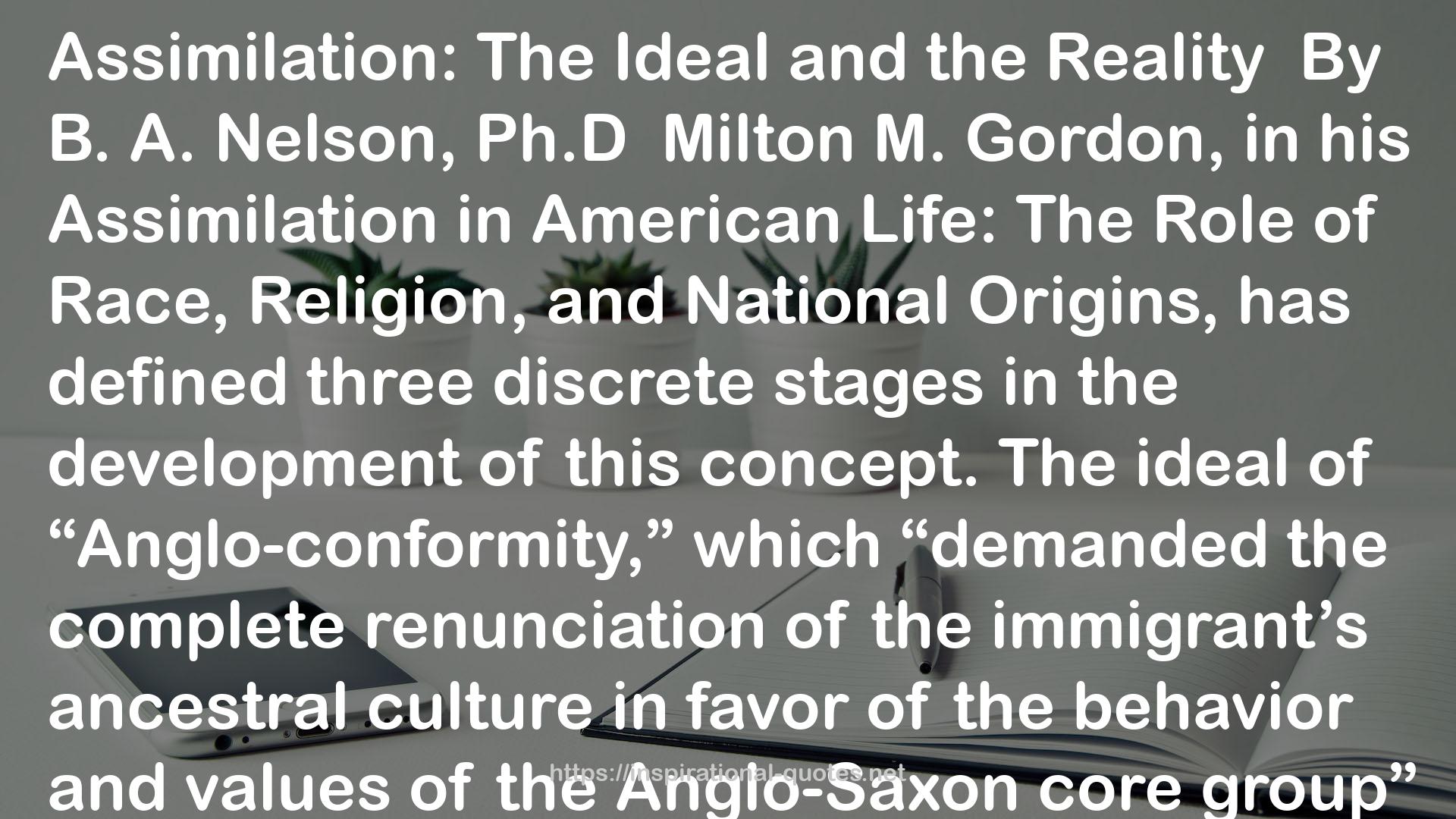" Assimilation: The Ideal and the Reality
By B. A. Nelson, Ph.D
Milton M. Gordon, in his Assimilation in American Life: The Role of Race, Religion, and National Origins, has defined three discrete stages in the development of this concept. The ideal of “Anglo-conformity,” which “demanded the complete renunciation of the immigrant’s ancestral culture in favor of the behavior and values of the Anglo-Saxon core group” prevailed almost until the end of the nineteenth century. It was superseded in the following two decades by the “melting pot” ideal, which heralded “a biological merger of the Anglo-Saxon peoples with other immigrant groups and a blending of their respective cultures into a new indigenous American type.” During the 1920s, the ideal of ”cultural pluralism” came into vogue, postulating “the preservation of the communal life and significant portions of the culture of the later immigrant groups within the context of American citizenship and political and economic integration into American society.”
… total and widespread acceptance of “Anglo-conformity” would be an impossible anachronism in the 1980s, when the majority of the nation’s immigrants come from Third World nations. Despite the glaring contradiction between the ideal of “Anglo-conformity” and the reality of contemporary immigration, one aspect of “Anglo-conformity” does, however, linger on as a phantom “residue,” much like the whiff of scent which remains in a long-emptied bottle. Although both leaders and the led know that “Anglo-conformity” has become an impossible ideal, both retain this one notion that has become a perennial source of solace whenever anyone dares to suggest that future immigration might challenge and deny the national premise of e pluribus unum.
… This notion assures those who believe in it that, even if the “Anglo-Saxon core group” dwindles in numbers and power to the point of becoming marginal, the Anglo-Saxon political heritage will yet survive. … This last “residue” of belief in Anglo-Saxon superiority would be simply an innocuous illusion were there not indications that official public policy is moving in a direction directly contrary to the Anglo-Saxon political tradition. ,,, The new American dilemma, as fateful as the one once addressed by Gunnar Myrdal, is the nation’s drift away from its tradition of “liberal pluralism,” in which “government gives no formal recognition to categories of people based on race or ethnicity,” and towards a new, “corporate pluralism,” which “envisages a nation where its racial and ethnic entities are formally recognized as such -- are given formal standing as groups in the national polity -- and where patterns of political power and economic reward are based on a distributive formula which postulates group rights and which defines group membership as an important factor in the outcome for individuals.”
… Corporate pluralism is, in fact, the opposite of the popular notion of assimilation as the disappearance of alien characteristics in an all-transforming native culture. Since corporate pluralism replaces “individual meritocracy” with “group rewards,” it strongly discourages assimilation… "
― Brent A. Nelson
Image for Quotes

